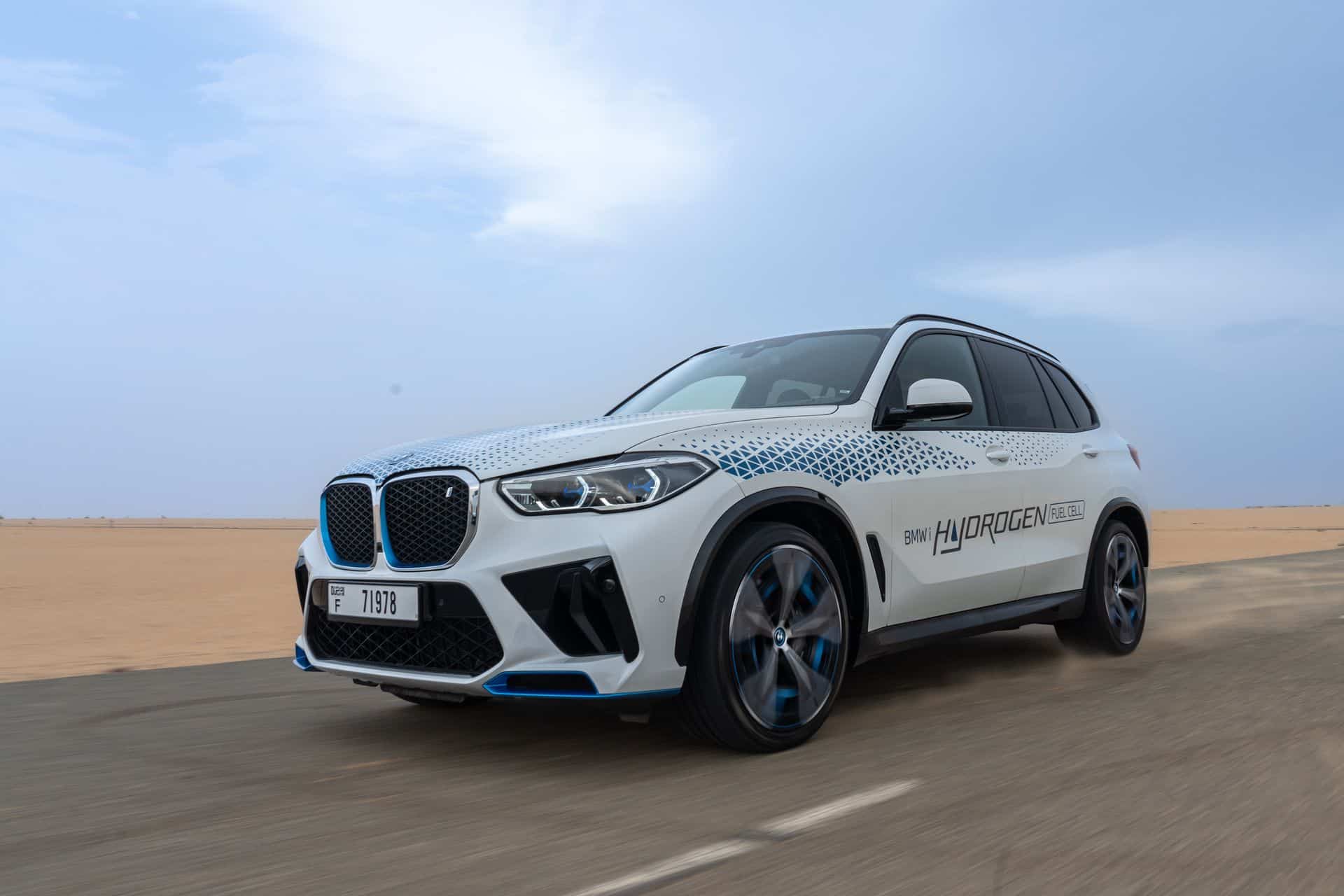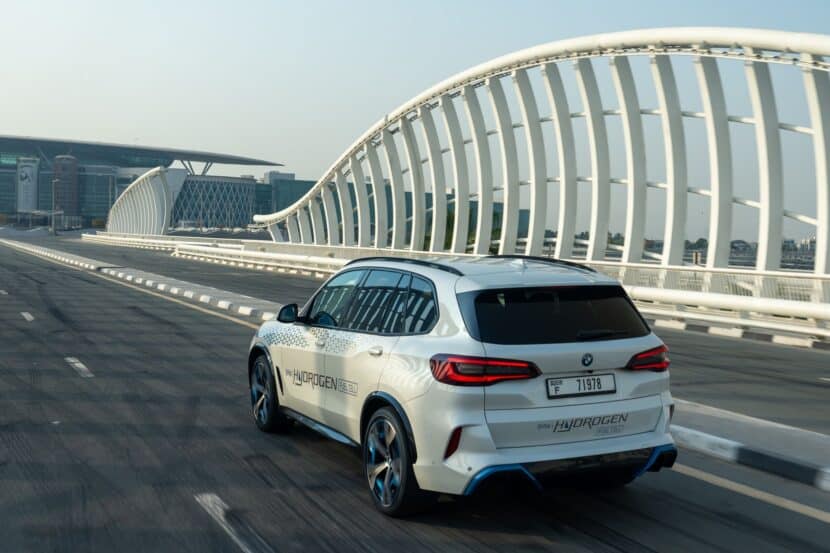Many people think automakers such as BMW and Toyota are beating a dead horse with their determination to pursue the development of fuel-cell vehicles since the refueling infrastructure is still in its infancy. The German luxury brand isn’t selling a hydrogen car for now but it has built a test fleet of about 80 iX5 SUVs. These are part of a pilot program currently going on in many parts of the world to assess how drivers feel about using a large SUV that runs on hydrogen.
Early feedback has been positive, according to BMW’s General Program Manager for Hydrogen Technology. In an interview with Automotive News Europe at the 2023 IAA Mobility show in Munich, Juergen Guldner said those who were given the opportunity to hop behind the wheel of the iX5 in Germany, California, and the Middle East suffered less from the dreaded range anxiety. By the way, BMW rates the vehicle at 313 miles (504 kilometers) of range in the WLTP cycle.
He explained drivers were more likely to turn on the AC on a hot day and worry less about losing range compared to a battery-powered electric car. Some went as far as to say the iX5 Hydrogen “is cool. We wish more people would do this because batteries alone will not be able to do the job.” As a refresher, the Toyota Mirai and Hyundai Nexo are the only FCEVs currently in production, and demand hasn’t exactly been strong.
Speaking of the Japanese automaker, it supplies BMW with the hydrogen fuel cells for the iX5 as part of a wider collaboration between the two companies that also involves the Z4-based Supra. Several execs from Munich have promised there will be a hydrogen model for sale before the end of the decade, suggesting it’ll take the shape of an SUV.
BMW builds the iX5 in Spartanburg, South Carolina together with the regular X5 versions but the conversion work is carried out at the R&D center in Munich. The zero-emission posh SUV recently completed testing in the United Arab Emirates where it had to withstand temperatures reaching 45°C (113°F).
Source: Automotive News Europe






































































